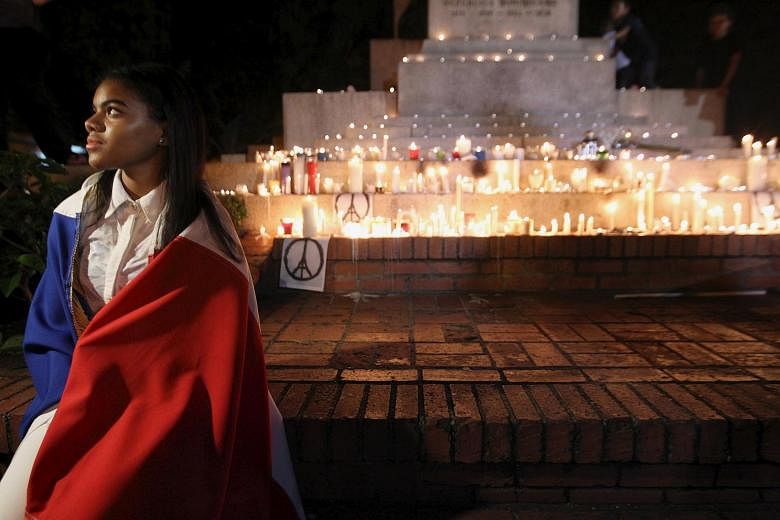LONDON (BLOOMBERG) - While nobody can predict how deeply investors will react to attacks that killed at least 129 people in Paris on Friday (Nov 13), the history of terror attacks around the world over the last 15 years shows how as such episodes increase, so has global market resilience.
Market reactions are often sharp and, increasingly, short-lived.
Here's a look at how four of the biggest past terror attacks affected markets.
Sept 11, 2001: New York

US markets shut down after the 9/11 attacks that killed almost 3,000 people and brought down the World Trade Center's twin towers. When trading resumed the following week, the Standard & Poor's 500 Index slumped 12 per cent in five days, the most since the aftermath of the October 1987 crash. But by Oct 11, it had recovered its losses.
Gains in Brent crude, up 5.5 per cent the day of the attacks, were erased within a week. Yields on 10-year Treasuries fell, reaching a low in early November, before recovering their pre-attack levels later that month. The US dollar, which tumbled the most since 1998 on Sept 17, had wiped off declines by the following month.
Oct 12, 2002: Bali bombings

The benchmark gauge for Indonesian stocks sank 10 per cent, and the rupiah fell with the nation's bonds after bombings in a Bali nightclub killed more than 200 people. By November, the Jakarta stock price index had erased the slide. It ended the year up 8.4 per cent.
March 11, 2004: Madrid bombings

Bombs let off in commuter trains in Madrid killed 191 people. That day, Spain's benchmark IBEX 35 Index fell 2.2 per cent, the most since the previous November. It dropped until March 15, when it reached its lowest level of the year, before rebounding to its pre-bombings level by the beginning of April.
July 7, 2005: London bombings

The benchmark FTSE 100 Index fell 1.4 per cent, the most in almost a year, as bombs killed more than 50 people in subway attacks. The gauge recovered the next day. The yield on 10-year gilts slipped eight basis points before rebounding the next five days. The pound, which weakened 0.7 per cent against the euro, continued its decline before recovering the following month.

